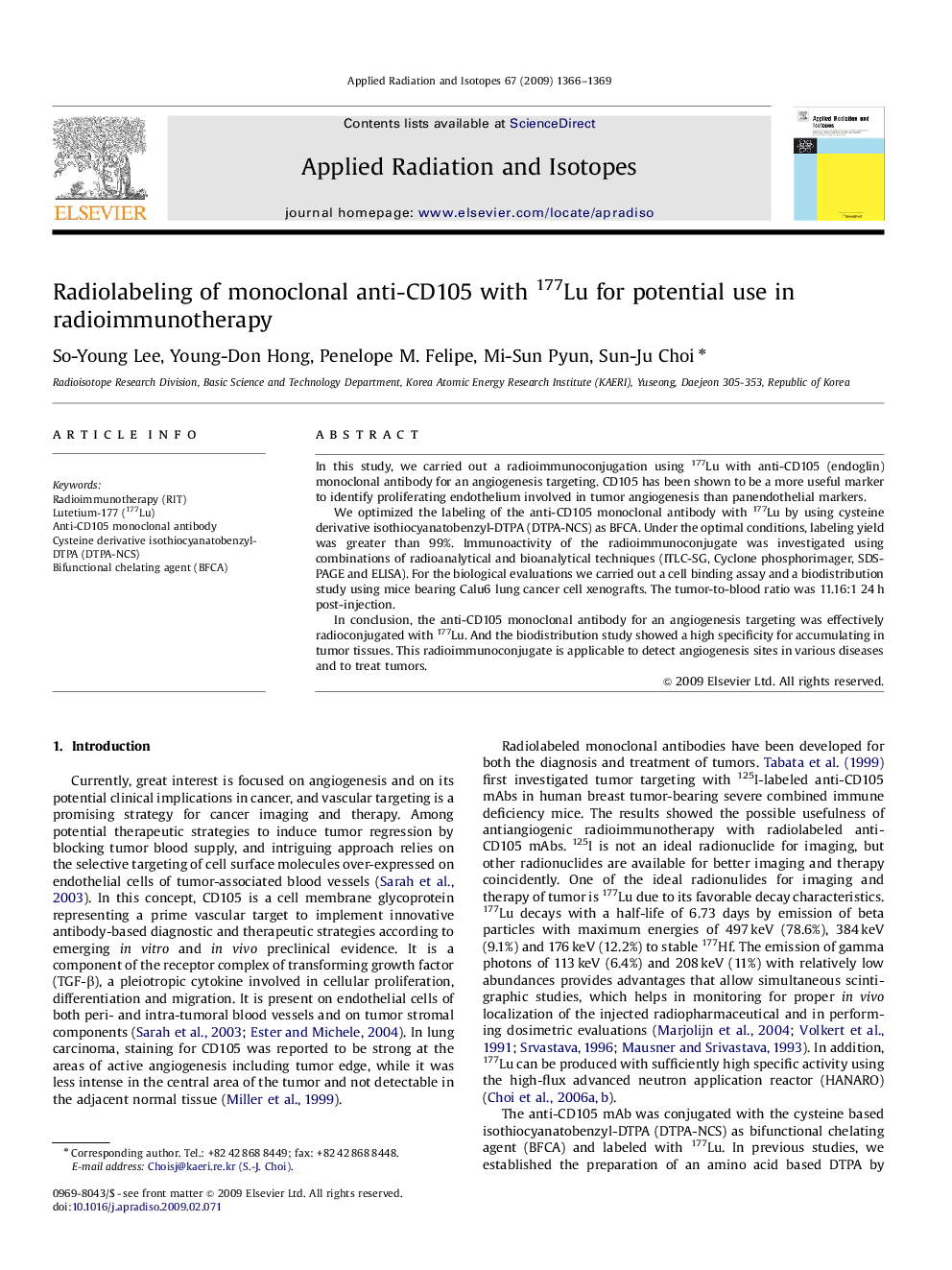| Article ID | Journal | Published Year | Pages | File Type |
|---|---|---|---|---|
| 1878170 | Applied Radiation and Isotopes | 2009 | 4 Pages |
In this study, we carried out a radioimmunoconjugation using 177Lu with anti-CD105 (endoglin) monoclonal antibody for an angiogenesis targeting. CD105 has been shown to be a more useful marker to identify proliferating endothelium involved in tumor angiogenesis than panendothelial markers.We optimized the labeling of the anti-CD105 monoclonal antibody with 177Lu by using cysteine derivative isothiocyanatobenzyl-DTPA (DTPA-NCS) as BFCA. Under the optimal conditions, labeling yield was greater than 99%. Immunoactivity of the radioimmunoconjugate was investigated using combinations of radioanalytical and bioanalytical techniques (ITLC-SG, Cyclone phosphorimager, SDS-PAGE and ELISA). For the biological evaluations we carried out a cell binding assay and a biodistribution study using mice bearing Calu6 lung cancer cell xenografts. The tumor-to-blood ratio was 11.16:1 24 h post-injection.In conclusion, the anti-CD105 monoclonal antibody for an angiogenesis targeting was effectively radioconjugated with 177Lu. And the biodistribution study showed a high specificity for accumulating in tumor tissues. This radioimmunoconjugate is applicable to detect angiogenesis sites in various diseases and to treat tumors.
